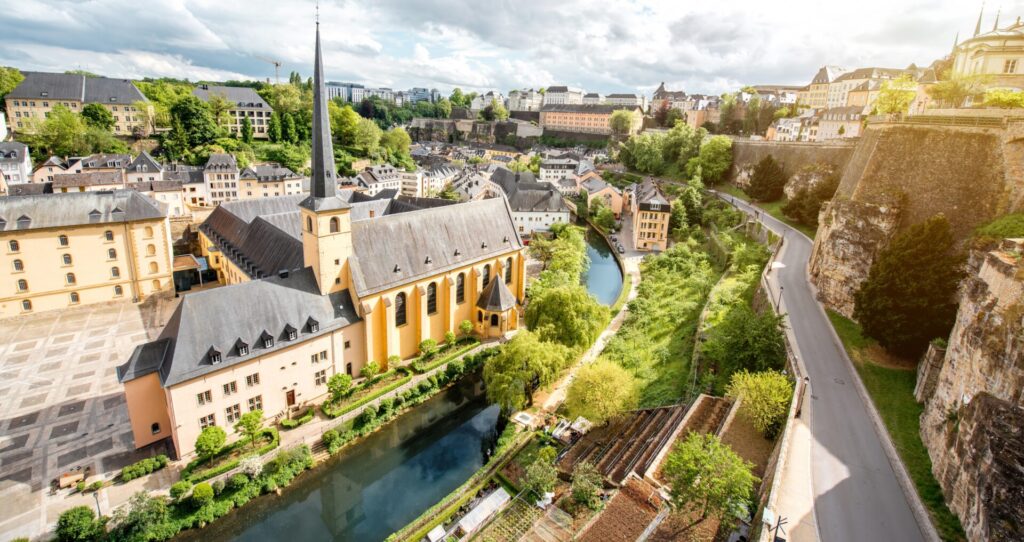Students often search for study-abroad options in large, well-known cities. That makes sense at first. Big names seem safe. But hidden under the radar, smaller places offer real academic value. The academic perks of smaller European cities deserve attention—now more than ever.
Table of Contents
ToggleWhat Are The Hidden Academic Perks of Smaller European Cities?
Europe has over 800 cities, but almost 700 of these cities are small and medium-sized cities, with the number of inhabitants ranging from 50,000 to 250,000. But even though so many cities of this size exist, they offer similar perks, which are:
- Lower costs, higher value
- Academic excellence
- Real language, real culture
- Community and connection
- Career opportunities in niche markets
- A complete path from studies to settlement
- A simpler, safer life

Caption: The academic perks of smaller European cities might not be so popular, but they are very real
Lower Costs, Higher Value
Big-city tuition often leads to big-city debt. In smaller cities, you spend less. That’s true for both education and daily life. Rent is cheaper. Food costs stay lower. Public transport is easy and affordable. These savings add up fast.
Still, low cost does not mean low quality. Many universities in these towns keep strong standards. They accept international students and support them well.
Here’s what you often find in smaller university towns:
- Lower tuition fees than capital cities
- Compact campuses that reduce travel costs
- Dorms or apartments near lecture halls
- Local discounts for students at restaurants or gyms
Because you worry less about expenses, you can focus more on learning. You also live better day to day. That can improve your grades and well-being.
Academic Excellence Beyond Big Names
top colleges in Europe do sit in major urban centres, but many high-ranking institutions also operate in smaller cities that don’t attract global headlines. One clear example is Leiden University in the Netherlands—a world-class school based in the small, historic city of Leiden.
In these smaller settings, teachers often know their students by name. Class sizes stay small. Professors respond quickly. You ask questions. You get clear answers. Courses often connect directly to local industries. A language degree might involve fieldwork in the community. A science course may include lab work tied to real projects. This brings practical value to every lesson.
Real Language, Real Culture
When you live in a major city, you may find comfort in English. But that’s not always best for learning. In smaller cities, locals use their native language in daily life. That means you must try. You learn by listening, asking, and speaking.
That pushes your progress faster. You order food, ask for directions and speak with classmates outside of class. This daily contact turns language lessons into lived experiences. The local culture feels closer, too. You don’t stand out as much. People often treat you like a resident, not a tourist. That builds trust and understanding.

The Academic Perks of Smaller European Cities: Community and Connection
Big cities feel crowded. Yet they often feel lonely. In smaller cities, you see the same people often. You form habits and routines. This creates comfort and consistency.
On campus, this leads to stronger ties. Students work together often. Professors stay available. You may talk with them during lunch, not just in class. You may join campus clubs and find support in seconds. Outside the university, you can meet locals, too. You attend local festivals, markets, and sports events, walk more and explore your neighbourhood.
These are some of the academic perks of smaller European cities that big cities rarely match. So, stay curious. Ask more. Compare cities. Then act. Your education deserves a place that works for you—both inside and outside the classroom.
Career Opportunities in Niche Markets
Big cities often take the spotlight, but smaller cities lead in key industries. Take Groningen in the Netherlands. Home to the highly respected University of Groningen, the city stands out for its focus on energy transition and sustainability. Students there don’t just study theory—they can work on projects tied to renewable energy, circular economy, and climate adaptation.
Because smaller cities like Groningen centre around niche fields, practical work is easy to access. Local companies welcome interns from the university. Professors lead research tied to regional needs. These real-world connections help students apply what they learn immediately. Many of these roles don’t exist in larger capitals. You may find career paths in these cities that big hubs overlook.
From Studies to Settlement
Your academic choice can shape your long-term plans. In the UK and many other European countries, international students can remain after graduation. You may apply for a work visa. You may even seek permanent residency in the UK or a similar country.
Small cities often offer faster routes toward legal settlement. That’s because regional governments try to attract skilled residents. If you finish your degree and work in the region, you may qualify for residence faster than those who settle in big cities.
A Simpler, Safer Life
Not every student thrives in crowds and traffic. Many prefer calm and quiet. Smaller cities often give you that space. Streets feel safer. Neighborhoods feel familiar. You walk instead of rushing through metro lines. You shop at weekly markets instead of massive malls. This slower pace can lower your stress. You sleep better. You breathe easier.
Students in smaller cities also report stronger mental health. That’s not surprising. Less noise, less crime, and shorter commutes often lead to better days. You still have access to healthcare, sports, and libraries. But you do so without endless queues or high costs.

Choose With Purpose
The academic perks of smaller European cities go beyond tuition. They include real support, useful degrees, and a clearer path forward after studying overseas. You gain peace, focus, and long-term options – all because you choose a smaller city to study in! So, ask hard questions. Compare places. Look past the noise. The right choice may not be big or flashy—but it may be perfect for your future.
KW: academic perks of smaller European cities
Meta description: Discover the academic perks of smaller European cities—affordable tuition, immersive culture, and advantages for global-minded students.




